The statement that follows was adapted by Dwight T. Colley from notes he used at the Regional High School forum on Our Vietnam Policy held on Nov. 20. In the discussion, Mr. Colley, a year round resident of Seven Gates Farm, who fought on the front lines of both World Wars, took an opposing view to that of Dr. Allen M. Butler of Tashmoo Farm, whose statement appeared in last week’s Gazette.
“I am sure that the good people of our Vineyard do not need to hear the so-called ‘other side’.
“However, in fairness to the school authorities who permitted the use of the school as a forum, I must assure the Vineyard parents and, most of all, our youngsters now overseas that this debate was only scheduled after complete assurance that our government’s position — the side of constituted authority — would be carefully presented.
“One more thing — you will all be pleased to know that the students clearly indicated in the question period that they understood our country’s stand remarkably well.
“Speaking from notes, we made the following points: We have no difference of opinion regarding the blessings of peace. We believe that our administration is taking the only course that can finally assure a fair and peaceful solution.
“We Are There”
“The problem is not should we be in Vietnam. We are there. I would agree most definitely that one of the blessings of a democracy is the privilege of the governed to take part in the governing. But, once the policy is affirmed by our President and approved by the Congress, then I say, if it is not disloyal it is certainly a great mistake to encourage our Communist enemies to believe that democracy is failing, because of organized dissension.
“Three presidents of different parties have given their word to this little people. We have repeatedly and publicly pledged the support of this country. Finally, last August when the Viet Cong, operating a flotilla of gun boats, attacked our fleet in international waters, Congress promptly supported the President’s resort to military action. Congress, by a combined vote of 504 to 2, passed a resolution expressing its support for the action of the executive, and I quote, ‘including the use of armed force to meet the aggression in Southeast Asia’.
“You, who are proud of our precious Constitution know it provides for debate and deliberation and finally for the placing of specific responsibilities. We, here in Massachusetts, are adequately represented in Congress and those men whom you write and talk with did not lead us into this serious situation blindly. Fully cognizant that they must account to all of us and to the world they took this deliberate step because there was no other choice.
“Our opponent today, a wise and famous physician, presents ideas well worth developing once we have provided protection for the Vietnamese to organize a suitable government, but to say we fight without purpose is unfair.
In Line with National Policy
“The President has repeatedly stated our position and I think it is important to point out that his decisions were fully in line with our announced national foreign policy. Dean Rusk clearly restated this policy before the Foreign Affairs Committee in August, 1965, and I quote, ‘The central objective of our foreign policy is a peaceful community of nations, each nation to choose its own institutions but cooperating with one another to promote their mutual welfare’.
“It is this kind of world order that is envisaged in the opening of the United Nations’ charter. Then, Dean Rusk went on to say, ‘But there are important forces in the world which seek a different goal—which deny the right of choice—which seek to expand their influence arid empires by other means including force’.
“These battles are far away in a little known land. There is no treasure there for us—we did not even want to establish military bases. Why not quit? Only our nation’s word is at stake—only our promise to a little people. It is a stifling rainswept land to fight in, one of the worst places, and many of us wish it just wasn’t so but, my young friends, this is not a policy in the making, this is a policy that is made, our force is committed and if we really want a just peace—and there is no other kind—then there is no point in temporizing, we must fight for it again. From the beginning of history, peace has been won and kept by the strong.”

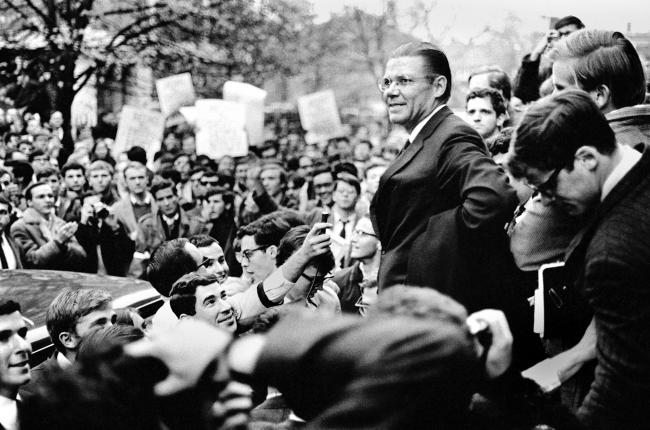




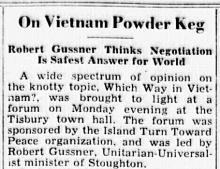
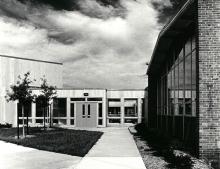
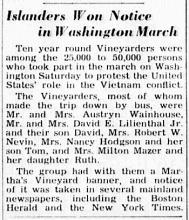

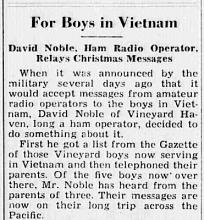
Comments